Heavy breathing in hummingbirds can be a concerning sign of underlying health problems. These small, fascinating creatures rely on their respiratory system to support their high metabolic rate and energetic lifestyle.
Understanding the potential causes and seeking appropriate care is essential for their well-being.
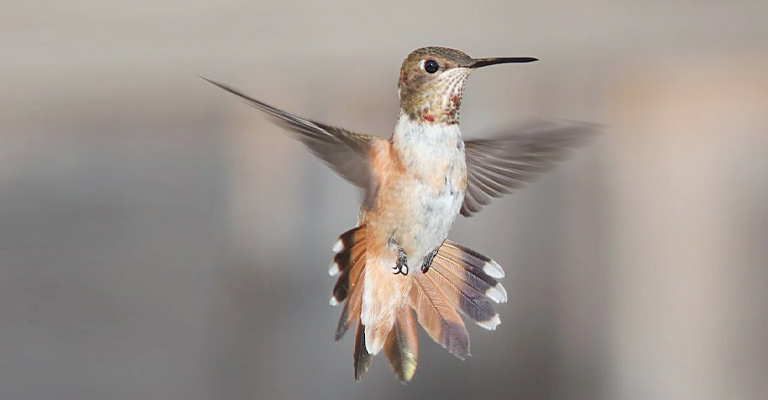
Is It Dangerous When a Hummingbird Breaths Heavy?
When a hummingbird breathes heavily, it is not necessarily an indication of danger. Heavy breathing in hummingbirds is a natural response to their high metabolic rate, energetic activities such as flight and courtship, and environmental factors.
It is a normal physiological mechanism that helps hummingbirds meet their oxygen demands and maintain their body temperature.
However, if a hummingbird consistently displays abnormal breathing patterns, such as persistent or labored heavy breathing, it could be a sign of underlying health issues or stress.
In such cases, it may be appropriate to consult a wildlife expert or veterinarian with experience in avian health to assess the bird’s condition and provide appropriate care if needed.
In general, occasional heavy breathing during normal activities should not be a cause for concern, as it is an essential part of a hummingbird’s natural behavior.
Causes of Hummingbirds Breathing Heavy
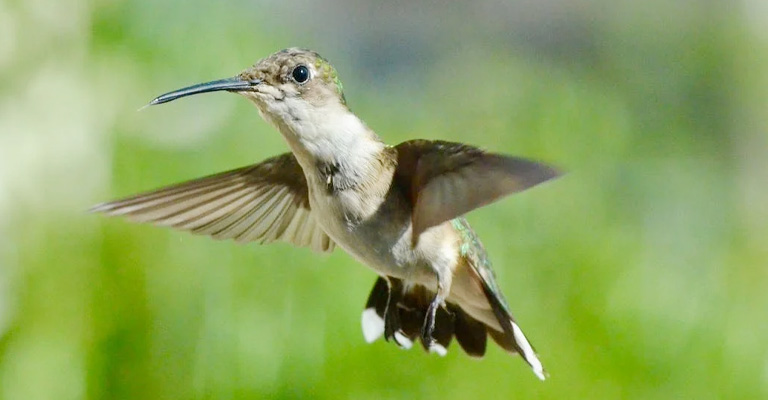
There can be several reasons a hummingbird can breathe heavily. Some of the common reasons are as followed.
High Metabolic Rate
Hummingbirds have a remarkably high metabolic rate due to their small size and active lifestyle. This rapid metabolism enables them to generate the energy required for continuous wing flapping, hovering, and other strenuous activities essential for their survival and unique aerial capabilities.
Energy Demands
Hummingbirds have significant energy demands to support their rapid wing beats and sustained hovering. To meet these requirements, they rely heavily on a diet rich in nectar from flowers, which provides the necessary carbohydrates for fuel.
This specialized diet allows them to maintain their high energy levels and perform their extraordinary aerial maneuvers.
Heat Generation
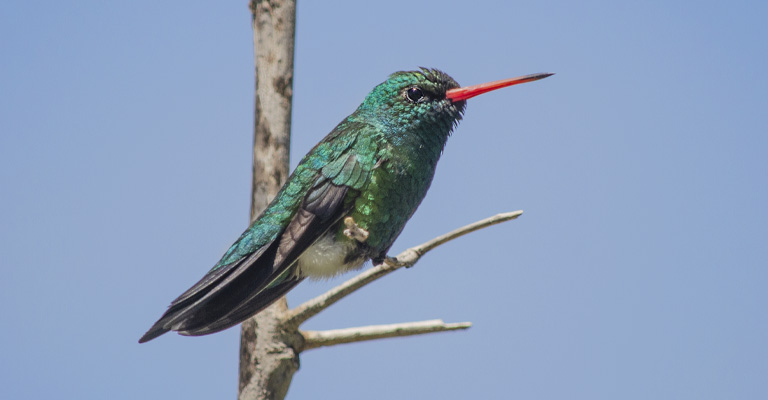
Due to their high metabolic rate, hummingbirds naturally produce heat as a byproduct of their energy metabolism.
When they engage in strenuous activities or find themselves in warm environments, their body temperature can rise. This heat generation is a natural consequence of their energetic lifestyle and physiological processes.
Thermoregulation
Hummingbirds employ various thermoregulatory mechanisms to regulate their body temperature. One notable behavior is gular fluttering, which involves rapid movement of the muscles in the throat region.
This action increases airflow around their throat, facilitating heat dissipation through evaporation. Gular fluttering helps them cool down and maintain a suitable body temperature during times of high metabolic activity or in warm environments.
Overheating
In situations where the ambient temperature is extremely high or when hummingbirds engage in prolonged, strenuous activity, their natural thermoregulatory mechanisms may struggle to keep up.
As a response, hummingbirds may exhibit heavy breathing or open their beaks to enhance air circulation, promoting evaporative cooling. These actions help them regulate their body temperature and prevent overheating.
Cooling Strategies
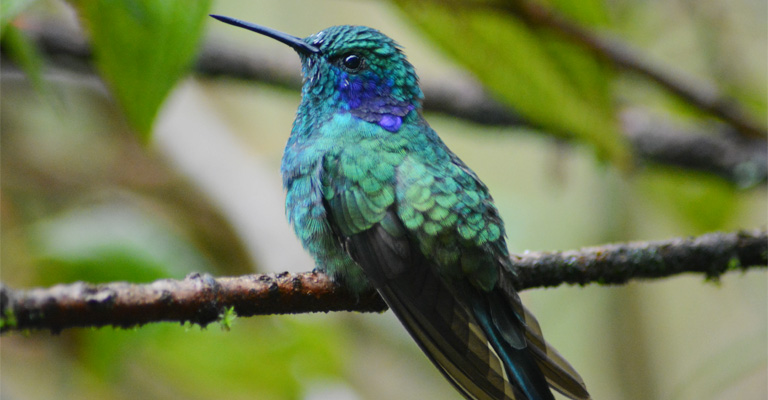
Hummingbirds employ multiple strategies to cool themselves when faced with overheating. They seek shade or fly through water mist to lower their body temperature.
Additionally, they open their beaks and pant, facilitating heat loss through evaporation from the moist surfaces inside their mouth and throat. These cooling mechanisms help them regulate their body temperature and prevent heat-related stress.
Environmental Considerations
The environment in which hummingbirds reside greatly affects their respiratory patterns. To prevent excessive heat and enable efficient breathing, it is important to provide suitable environmental conditions.
This includes offering shade to create cooler areas, positioning feeders in shaded or well-ventilated spots, and ensuring easy access to water sources for hydration.
Such considerations contribute to a more comfortable habitat for hummingbirds, reducing the likelihood of heavy breathing or overheating.
What Happens if a Hummingbird Breaths Heavily?
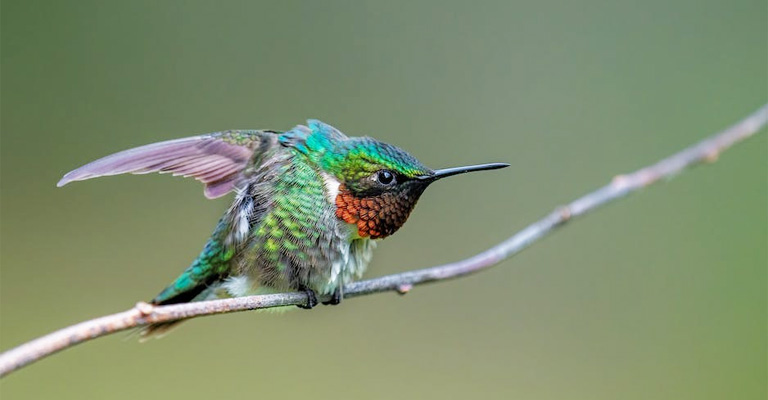
When a hummingbird breathes heavily, it is usually a response to increased oxygen demands or environmental factors. Here are some potential effects or consequences of heavy breathing in hummingbirds:
Increased Oxygen Intake
Heavy breathing allows hummingbirds to take in more oxygen to meet their high metabolic needs. This helps supply their muscles and organs with sufficient oxygen during strenuous activities like flight or courtship displays.
Heat Dissipation
Hummingbirds breathe heavily to aid in thermoregulation. By increasing respiration, they enhance heat loss through evaporative cooling, which is crucial in hot climates or during intense physical exertion.
Energy Expenditure
Heavy breathing is often associated with energy-intensive activities such as foraging or hovering. Hummingbirds consume a large amount of energy relative to their body size, and heavy breathing helps them meet these energy demands.
Fitness Display
During courtship displays, male hummingbirds may breathe heavily as part of their elaborate performances to attract mates.
The heavy breathing showcases their vitality and fitness, indicating their ability to sustain high-energy behaviors.
Environmental Adaptation
Hummingbirds adjust their breathing patterns based on environmental factors. For example, at higher altitudes where oxygen levels are lower, hummingbirds may breathe more heavily to compensate for reduced oxygen availability.
Stress or Health Concerns
While occasional heavy breathing is normal, persistent or labored heavy breathing could indicate health issues or stress in hummingbirds.
Respiratory infections, underlying health conditions, or external stressors can affect their breathing patterns, warranting attention and potential medical intervention.
It’s important to note that heavy breathing alone does not necessarily indicate immediate danger.
However, if a hummingbird exhibits other abnormal behaviors, appears lethargic, or shows signs of distress, it may be appropriate to seek professional advice from a wildlife expert or veterinarian with experience in avian health.
Treatment for Hummingbird Breathing Heavy
When encountering a hummingbird that is breathing heavily and showing signs of distress, it is crucial to approach the situation with care. Here are some guidelines for providing treatment:
Assess the Situation
Observe the hummingbird from a safe distance to determine the severity of its condition. Assess whether it is genuinely in distress and requires intervention.
Contact a Wildlife Expert
Reach out to a local wildlife rehabilitator, bird rescue organization, or wildlife veterinarian. They have the expertise and knowledge to provide specific guidance tailored to the situation and may be able to offer immediate assistance or advice.
Provide a Suitable Environment
If immediate help is not available, carefully move the hummingbird to a quiet and shaded area. Minimize stress by keeping the bird away from noise, pets, and excessive human activity.
Ensure Proper Hydration
If the hummingbird appears weak or dehydrated, you can offer a hummingbird feeder with a sugar-water solution. The ratio for the solution is 1 part white granulated sugar to 4 parts boiling water. Allow the mixture to cool before providing it in a clean and appropriately sized feeder.
Avoid Force-feeding or Handling
It is essential to avoid force-feeding or handling the hummingbird unless instructed to do so by a wildlife expert. Improper handling can cause further stress and harm to the bird.
Minimize Disturbances
Keep human interactions to a minimum to allow the hummingbird the best chance for recovery. Limit observation and disturbances to reduce stress and allow the bird to rest and recuperate.
Follow Professional Advice
Cooperate with the wildlife expert and follow their instructions carefully. They may recommend additional steps, such as transporting the hummingbird to a rehabilitation center for further care.
Faqs
Heavy breathing in hummingbirds is usually indicative of an underlying health issue and is not considered normal. It is essential to monitor their breathing and seek professional help if heavy breathing persists.
Normal hummingbird behavior involves rapid wing beats and quick respiration, which is different from heavy breathing. Heavy breathing may be characterized by open-mouthed breathing, gasping, or visibly labored breathing patterns.
While stress or anxiety can affect hummingbirds, heavy breathing is more likely to be a result of physical health conditions. However, prolonged stress may weaken their immune system, making them more susceptible to respiratory infections.
It is not recommended to try home remedies for hummingbirds with heavy breathing. These birds have unique needs and require professional care. DIY interventions may worsen their condition and delay appropriate treatment.
It is best to avoid offering food or water to a hummingbird with heavy breathing without professional guidance. A wildlife rehabilitator or avian veterinarian can assess the bird’s condition and provide appropriate care, which may include specialized feeding techniques.
Conclusion
Heavy breathing in hummingbirds is a sign of underlying health issues, including respiratory infections, fungal tongue infections, environmental factors, and other health conditions.
Prompt professional assessment and treatment are crucial. Avoid DIY interventions and seek expert care to ensure the well-being and recovery of these remarkable avian creatures.
Protect and cherish these tiny marvels of nature.